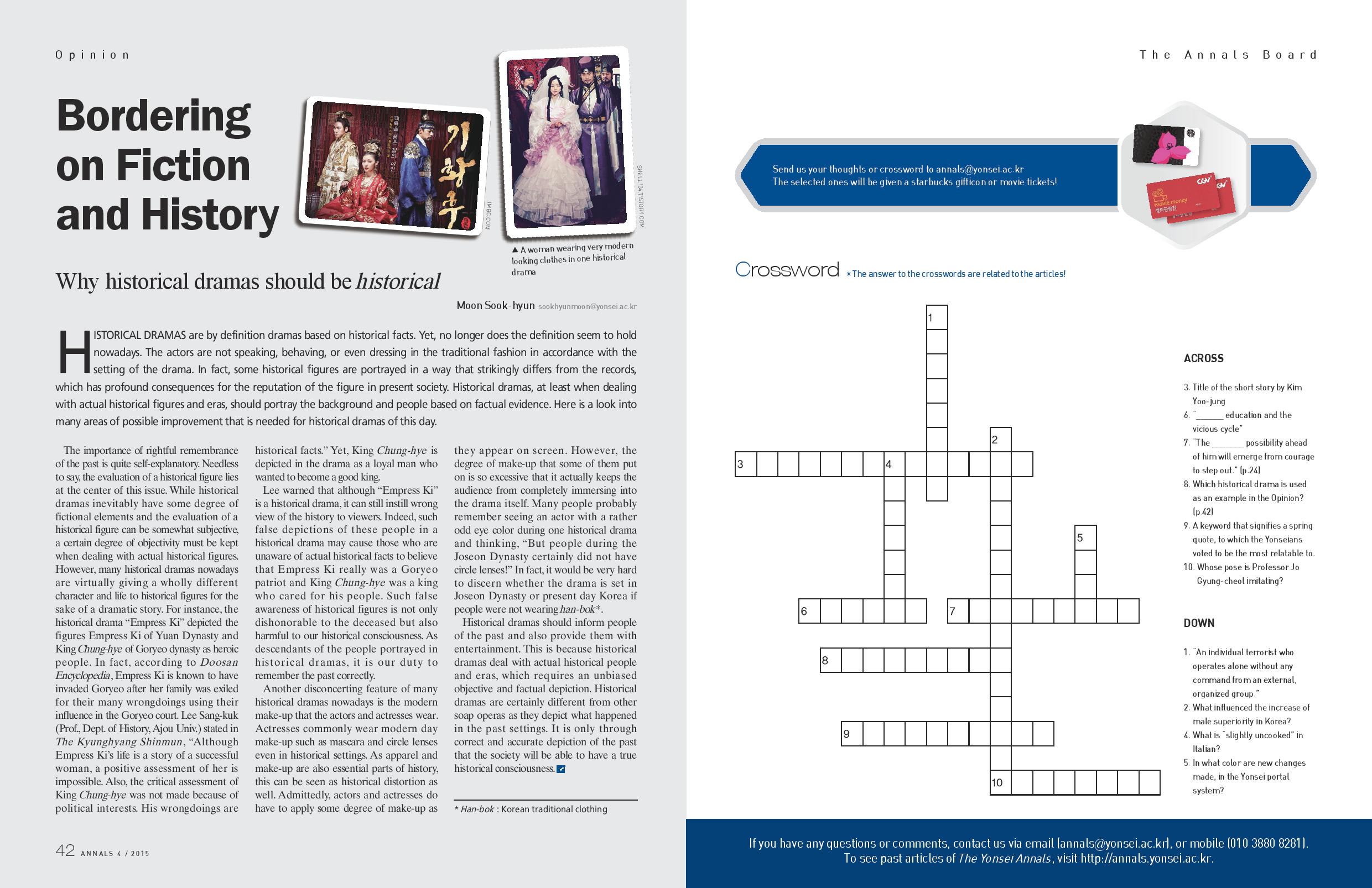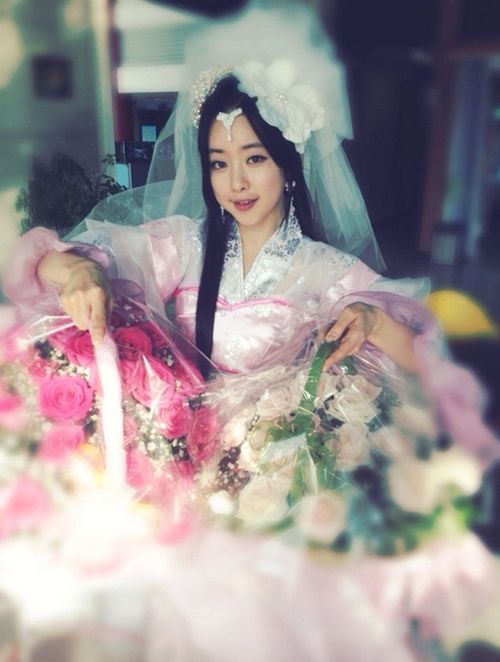Why historical dramas should be historical


HISTORICAL DRAMAS are, by definition, dramas based on historical facts. Yet, the definition no longer seems to hold true nowadays. The actors are not speaking, behaving, or even dressing in the traditional fashion in accordance with the historical setting of the drama. In fact, some historical figures are portrayed in a way that strikingly differs from the records, which has profound consequences for the reputation of the figure in present society. Historical dramas, when dealing with actual historical figures and eras, should portray the background and people based on factual evidence. Many areas of historical dramas need improvement to preserve actual events and people from the past.
The importance of rightful remembrance of the past is quite self-explanatory. Needless to say, the evaluation of a historical figure lies at the center of this issue. While historical dramas inevitably have some degree of fictional elements and the evaluation of a historical figure can be somewhat subjective, a certain degree of objectivity must be kept when dealing with actual historical figures. However, many historical dramas on television today are giving historical figures a wholly different personality and lifestyle to create a dramatic effect. For instance, the historical drama “Empress Ki” depicted the figures Empress Ki of Yuan Dynasty and King Chung-hye of Goryeo dynasty as heroic people. In fact, according to Doosan Encyclopedia, Empress Ki invaded Goryeo after her family was exiled for their many wrongdoings using their influence in the Goryeo court. Lee Sang-kuk (Prof., Dept. of History, Ajou Univ.) stated in The Kyunghyang Shinmun, “Although Empress Ki’s life is a story of a successful woman, a positive assessment of her is impossible. Also, the critical assessment of King Chung-hye was not made because of political interests. His wrongdoings are historical facts.” Yet, King Chung-hye is depicted in the drama as a loyal man who wanted to become a good king.
Lee warned that because “Empress Ki” is a historical drama, it can instill the wrong view of history to viewers. Indeed, such false depictions of these people in a historical drama may cause those who are unaware of actual historical facts to believe that Empress Ki really was a Goryeo patriot and King Chung-hye was a king who cared for his people. Such false awareness of historical figures is not only dishonorable to the deceased but also harmful to our historical consciousness. As descendants of the people portrayed in historical dramas, it is our duty to remember the past correctly.
Another disconcerting feature of many historical dramas nowadays is the modern make-up that the actors and actresses wear. Actresses commonly wear modern day make-up such as mascara and eye enlarging circle lenses even in historical settings. As apparel and make-up are also essential parts of history, this can be seen as historical distortion as well. Admittedly, actors and actresses do have to apply some degree of make-up as they appear on screen. However, the degree of make-up that some of them put on is so excessive that it actually keeps the audience from completely immersing into the drama itself. Many people probably remember seeing an actor with a rather odd eye color during one historical drama and thinking, “But people during the Joseon Dynasty certainly did not have circle lenses!” In fact, it would be very hard to discern whether the drama is set in the Joseon Dynasty or present day Korea if it weren’t for the people wearing han-bok.
Since historical dramas deal with actual historical people and eras, it should inform people of the past as well as provide them with entertainment. An unbiased, objective, and factual depiction of the past is necessary. Historical dramas are certainly different from other soap operas as they depict what happened in the past. It is only through correct and accurate depiction of the past that the society will be able to have a true historical consciousness.
Han-bok: Korean traditional clothing

